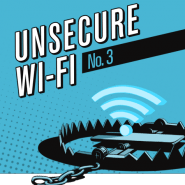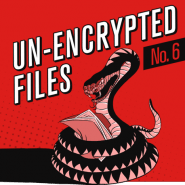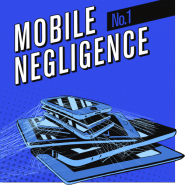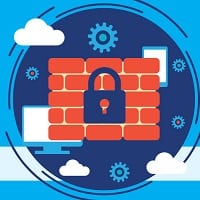By Karen O’Connor, general manager service delivery, Datapac
IT Security is constantly under threat, and these seven basic errors put your organisation at major risk. Our comprehensive tips will help to ensure that your data remains secure.
Cybercrime is a growth industry. Ever higher numbers of criminals are exploiting security gaps to infiltrate organisations, steal data, and cause irreparable reputational damage. The estimated costs of cybercrime to the global economy run to billions of euro. Despite this harsh reality it can be easy to become complacent and rely on the peace-of-mind offered by your organisation’s complex and expensive IT security setup. However, it is essential to realise that you can have the most complex or expensive security system in the world, and a few basic errors could still lead to a serious data breach, rendering your security systems useless. Welcome to the seven Deadly Sins of IT.
These are seven areas identified by leading global IT security provider Sophos that are frequently overlooked by organisations considering their IT security, which can led to vulnerabilities in the ICT infrastructure. However, with a little bit of effort these chinks in the armour can be filled, ensuring that your IT security remains robust. The first step is identifying the weaknesses, and applying the helpful tips outlined below:
The Seven Deadly Sins
1. Mobile negligence
It might seem advantageous to allow your employees to access their email and work documents on their mobile devices, but ‘BYOD’ can translate to ‘bring your own disaster’ if you’re not aware of the potential vulnerabilities around mobile technology. Hackers are targeting mobile devices to steal sensitive data, access email, and for a whole host of other malicious purposes. Fortunately, there are some simple steps that you can take to ensure mobile security. Enforce secure passwords, block unwanted apps and enable secure Wi-Fi. The risk of data breaches should also be reduced by employing remote wipe and anti-theft technologies.
 2. Mac Malice
2. Mac Malice
Walk into almost any office building these days, and you will see an abundance of Macs compared with just a few years ago. However, many Macs are not adequately protected against malware and data loss. As their popularity grows, so does the inclination of malicious hackers to infect them with malware. Macs can even play host to Windows malware and spread it across your network to Windows computers. Utilising cross-platform protection can ensure that your network remains secure. It is also important to enforce user-based policies that follow users across devices and platforms and secure Macs against current threats.
 3. Unsecure Wi-Fi
3. Unsecure Wi-Fi
Unsecure Wi-Fi has been causing data breaches for years. It is essential to remember that you don’t know where all the devices trying to connect to your network have been, and that if your hotspot provides full access to your network, you could be offering access to more data than you intended. The following tips will make sure that the door remains firmly closed to cybercriminals targeting your Wi-Fi: Firstly, enforce your standard network security policies across your wireless network. Secondly, block undesirable websites and unsecure mobile devices. And finally, one tip that can be really helpful in avoiding data breaches is to set up separate hotspots with different policies for different groups, with as much or as little network access as needed.
4. Un-encrypted email
Email is often sent in plain text format, meaning that anyone can take a look at your potentially sensitive information and use it for their personal gain. Encrypting your email is one way to make it more difficult for hackers to access your data. There are plenty of solutions available which can automatically detect sensitive information leaving your organisation and encrypt it. This has the added advantage of removing the responsibility of data protection from your employees, something they’ll be sure to thank you for!

5. Faulty firewall
The faithful firewall is the unsung hero of data protection, and is often neglected for the very reason that it never causes any fuss. However, if your firewall fails to keep up with evolving threats and bandwidth demands then this could cause problems down the road. Investing in a modern firewall that offers built-in reporting will increase your chances of remaining secure, and being aware of any attacks that are launched against your servers.

6. Un-encrypted files
Similarly to un-encrypted email, once a hacker gains access to your database they can simply take a look at your files and spread them all over the internet as long as they remain un-encrypted. Encryption offers extra peace-of-mind, meaning that even if you are to suffer a breach, the likelihood of cybercriminals being able to access your files is dramatically reduced.

7. Delinquent Web Filtering
Web filtering is more difficult than ever before, thanks to the fact that 80% of malware is located on legitimate websites that have been compromised. It is possible to become affected by malware by visiting a site that wasn’t compromised the day before. Some ways to combat this proliferation of malware are to employ URL filtering to keep out prohibited content; scan in real-time to catch threats on the sites that you visit; and protect against advanced threats with technologies like JavaScript emulation which identifies threats that avoid traditional antivirus software.
Employing these tips will help hugely towards ensuring comprehensive data security. For further advice contact a highly experienced and accredited service provider such as Datapac. We have extensive experience in providing cost-effective ICT solutions, and provides a proactive service to identify and rectify potential security threats before they become real problems. Find out more here
FREE WEBINAR
Anatomy of a CryptoWall attack and how to keep your business safe
28th April, 1pm
In this webinar, Datapac and Sophos experts will go beyond the hype and headlines to take a deeper look at ransomware attacks. They will investigate how ransomware works, and analyse the tricks used by cyber criminals to make it so powerful. Finally, they will provide invaluable advice about how to coordinate your security defences, and keep your organisation safe from malicious hackers.
Learn more and register >>
Register for upcoming events
-
 "At Barretstown, we rebuild the lives of children, and their families, affected by childhood cancer and other serious illnesses. We serve 5,000 campers a year and have 1200 volunteers each year. Communication is crucially important and Datapac has helped us to streamline, improve and ensure efficiency."
"At Barretstown, we rebuild the lives of children, and their families, affected by childhood cancer and other serious illnesses. We serve 5,000 campers a year and have 1200 volunteers each year. Communication is crucially important and Datapac has helped us to streamline, improve and ensure efficiency." -
 "Datapac has provided us with a fantastic product and world-class levels of service and support. Whenever people ask me about our experience with Datapac I’m always ready to sing their praises and I would happily recommend their services to any organisation."
"Datapac has provided us with a fantastic product and world-class levels of service and support. Whenever people ask me about our experience with Datapac I’m always ready to sing their praises and I would happily recommend their services to any organisation." -
 "For many years Datapac has been our sole supplier for the maintenance of Personal Computers and Peripherals in Ireland. Through their Service Centres in Wexford and Dublin, Datapac provides excellent support to our businesses throughout the country and consistently meets the SLA targets which we have set. The skill, expertise and experience of their engineers and other technical support personnel are of the highest standard."
"For many years Datapac has been our sole supplier for the maintenance of Personal Computers and Peripherals in Ireland. Through their Service Centres in Wexford and Dublin, Datapac provides excellent support to our businesses throughout the country and consistently meets the SLA targets which we have set. The skill, expertise and experience of their engineers and other technical support personnel are of the highest standard." -
 “The value of dealing with an HP Gold partner in this process can’t be underestimated. Datapac provide us with a local touch and can cover the full range of our IT requirements, but when there is a specific technical requirement like this, they can bring the specialist technical resources of HP to the table. HP and Datapac had a thorough discussion with us around our requirement - and had really done their homework - and then were able to provide us with a very highly specified test platform for us to prove the application on before we committed to purchase.”
“The value of dealing with an HP Gold partner in this process can’t be underestimated. Datapac provide us with a local touch and can cover the full range of our IT requirements, but when there is a specific technical requirement like this, they can bring the specialist technical resources of HP to the table. HP and Datapac had a thorough discussion with us around our requirement - and had really done their homework - and then were able to provide us with a very highly specified test platform for us to prove the application on before we committed to purchase.” -
 Datapac understands our needs and requirements and has the expertise and experience to follow through on all our requests. Our constant need to reduce costs has been assisted by Datapac's ability to suggest alternative solutions and methods whilst improving both efficiency and productivity. Our partnership with Datapac is akin to having an IT department on site that we simply could not provide ourselves.
Datapac understands our needs and requirements and has the expertise and experience to follow through on all our requests. Our constant need to reduce costs has been assisted by Datapac's ability to suggest alternative solutions and methods whilst improving both efficiency and productivity. Our partnership with Datapac is akin to having an IT department on site that we simply could not provide ourselves.


